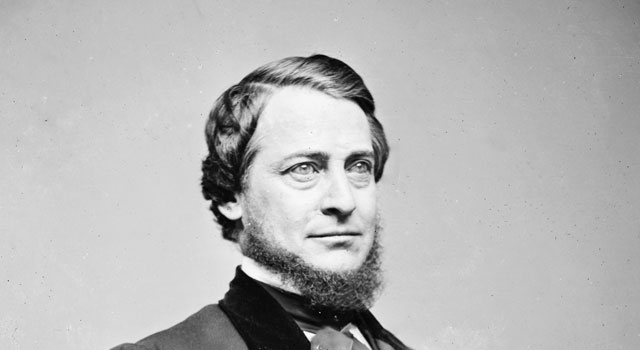News
On this day in history: Clement Vallandigham

Ever wonder who Clement Vallandigham was, besides the guy who accidentally shot himself and died at the Golden Lamb (and thus, also received a room named after him)? From our friends at History.com:
THIS DAY IN HISTORY: October 13, 1863
Ohio voters reject Vallandigham
The voters of Ohio send Clement Vallandigham to a resounding defeat in the fall gubernatorial election. As leader of the Copperheads, or anti-war Democrats, Vallandigham was an important and highly visible critic of the Republicans’ war policy, particularly the emancipation of slaves.
Vallandigham was elected to the U.S. House of Representatives from Ohio in 1858. He was a Democrat and disapproved of slavery, but he admired Southern society and disagreed with starting a war over the issue of slave emancipation. He advocated states’ rights and generally agreed with most Southern political views. When the war began, he became a vociferous critic of both the method and war aims of the Republicans. As the war turned bloodier and it became clear that a Union victory would take years, Vallandigham began to gather supporters, and he became recognized as the leader of the Peace Democrats, or Copperheads. When the Lincoln administration began to curtail civil liberties, Vallandigham’s criticism placed him in increasing jeopardy. In spring 1863, Union General Ambrose Burnside issued Order No. 38, which stated that public criticism of the war would not be tolerated. Vallandigham defied the order and was arrested. He was tried on charges of “expressing treasonable sympathy” with the enemy, and was found guilty by a military tribunal in Cincinnati. He was banished to the Confederacy in May 1862.
Vallandigham soon relocated to Windsor, Ontario, and, despite his exile, mounted a campaign to become the Ohio governor. Elections were a barometer of the Northern war effort. In 1862, voters expressed dissatisfaction with President Abraham Lincoln by sending many Democrats to Congress. However, in 1863, after key Union successes at Vicksburg and Gettysburg, the voters increased Republican control of both houses. In Ohio, Vallandigham lost by more than 100,000 votes out of a half million ballots cast. He returned to the United States in 1864 and continued his criticism of “King Lincoln,” as he called the president. Vallandigham helped write the Democrats’ platform at their national convention in 1864. By insisting that a statement be included declaring the war a failure and calling for an immediate end to fighting, Vallandigham helped ensure a Democratic defeat in the presidential election.
After the war, he practiced law and tried to get back into Ohio Democratic politics, but Democratic leaders rejected him as a senatorial candidate. In the early 1870s, he became an advocate of bridging the gap between Democrats and Republicans, a movement that spawned the Liberal Republican Party. Vallandigham died in 1871 at age 50 when he accidentally killed himself while demonstrating how a murder had been committed (he was defending the accused murderer).
